
age 53 and still retrieving books from my parents attic. This is one of the great transformative works in the development of the concept that great books might be written using the simple elements of the strip cartoon (an idea that is not to be confused with the corrupted and now irretrievable idea of 'the graphic novel'.) Walt Kelly's intro is dated Feb 1970, so presumably the material comes from 1969 (Jan -Aug, reading from data in the strips...) But such nitpicking seems to me to belittle Kelly's achievement here; continuity strips wouldn't normally expect readers to keep track of narrative ideas for eight weeks let alone months. Of all the books collecting the Pogo daily strip, this work stands out for being through-composed and cunningly structured. With the chapter titles in place it is difficult to think other than that the author saw the book in his head while he was turning out these dailies, though there are presumably many tangents and stops, restarts and nods to topical occurences that have been pruned out of the 1969 catalogue to boil it down to such essential perfection.
And what chapter titles: Looking ahead behind by a nose; A Head in a hole and vice versa; The drive-in self service mortuary; Justice is blind, deaf and stoned; All's well that ends.(the last has long been my favourite Kelly-ism)
"One of the great stumbling blocks in history is that one day follows another".
It starts with the New Year's Day gathering of the intimate cast of characters who in their inventive and sprightly conversation arrive at a plan to rearrange the calendar.
"I don't want no month with a thirteenth day in it." says Churchy la Femme, the turtle.
"What folks gonna do from the 12th to the 14th, hold their breath?"
"When you suggests people stops breathin' for one day a month you little recks with innocent pleasures."
"But it would help fight pollution."
And by this simple means we arrive at the theme of the book.
If everybody holds their breath we can reduce pollution. The logic proceeds apace as only in Walt Kelly...
"You take a fella what's a fish, he don't breathe."
"But he do... for centuries he's been breathin' water what's contaminated with old ruubber boots, tin cans, old bedsprings, garbage delicacies an' unfrocked umbrellas."
Inevitably the business of non-breathing leads us to the cemetery:
"The way I figger it, if we get all the non-breathers to endorse not breathin' on our seance tv show..."
The look of the thing starts getting elaborate, with the specially lettered typefaces for the dialogue of Deacon Muskrat and Sarcophagus MacAbre. The villainy of this pair starts to look ineffectual after the introduction of Kelly's caricature of Spiro Agnew as a hyena (pictured on the book's cover, above), who finds it easier to try and convict Churchy after putting a long haired wig on his bald pate. Kelly's grasp of the political situation has proven to be spot-on at a time when so many other cartoonists of his generation were embarrassingly out of step, such as Al Capp and Milt Caniff. If memory serves, I had only just read this book when Kelly died in 1973, aged sixty.
The book ends after 128 pages where it started with our beloved cast back around the table, and with Kelly's greatest catchphrase of all:
I feel an enormous warmth in being reunited with this masterpiece after twenty five years of separation. I'm also curious about the atmospherics of my parents' attic, which have preserved this and other artefacts in completely perfect condition.
Labels: classic strips(2), old books (2)
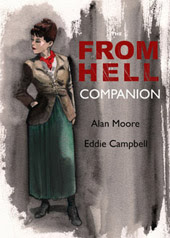
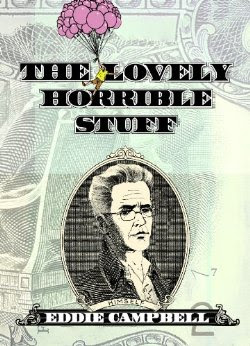

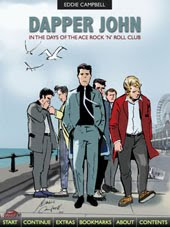
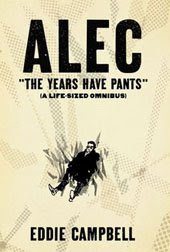
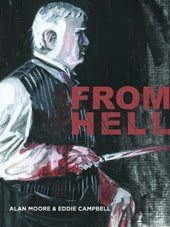
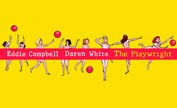
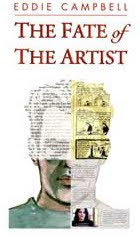
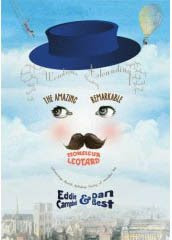
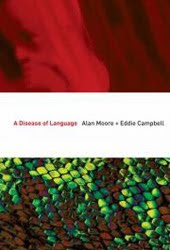
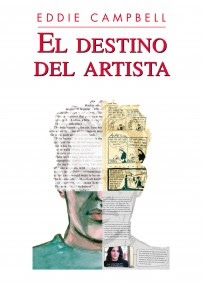
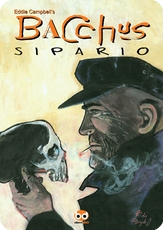
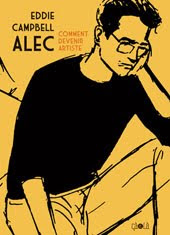

8 Comments:
Along with being a talented artist, Kelly was a satirist of the highest caliber. His commentary is as pertinent today as it was 40 years ago. It's a thinking-person's cartoon - one that forces us to see ourselves and the world around us through his eyes, and his character's eyes. Back then he took on the John Birch Society, the '68 election, J. Edgar Hoover, and Joe McCarthy (to name a few). My students don't get the references without a history lesson, but if you look past this aspect, you see a cartoon that is timeless and everlasting - one that forces us to re-look at ourselves and the world around us each time we read it.
Thanks for writing an entry on Pogo. Makes me want to pull out a book and re-read some myself.
- Alec
Makes me want to revisit Pogo, too. I'd forgotten just how smart it was.
I grew up with political junkies, my parents were passionate liberal Democratics and since I can remember I have worked in campaigns. Politic were always dinner conversation so Pogo was a great delight to me as a child for I got the inside jokes. Oh, the great American political satirist. Most people remember Little Orphan Annie as the sugar coated musical, but actually Harold Gray was a great voice for F.D.R. New Deal, supported Labor Unions and the American Farmers. And spoke out aganist Hoover and his Hoovervillas, the homeless of the era. I use to love to read Doonebury and wonder if he was geting some inside information from someone working on the Hill. Sadly, I wonder what is the fate of the political cartoonist since newspaper sales are down and so many people these days are getting their news from the Internet these days. Ah me, progress. But is it really? Great stuff as always! namaste- geri
My Dad let me read his 1950s POGO books when I was about 9 years old. I did not get the politics, but I loved the language and the art. Later on, I began to understand what Kelly was getting at.
IMPOLLUTABLE POGO was the first Kelly book that I ever bought and I still have it (along with most of my Dad's older POGO books). There is more cartoony goodness in, for instance, those final 3 panels, than in a lot of GNs I've read.
Thanks, Eddie, for the trip down memory lane. Like a lot of people you've inspired, now I have to pull the book off the dusty shelf and reread it.
Pogo is a classic. Has it gotten the high-end reprints that other classic strips have gotten in recent years.
BTW Yoga Gal, you ought to take a look at the Orphan Annie strips that are being reprinted. Harold Gray HATED Roosevelt, thought he was communist and was leading the country on the path to ruin. Gray was a big time Republican who believed anyone could pull himself (or herself) up by their bootstraps.
I love Impollutable Pogo! The very first non-Superman "comic book" I ever read, age 6 or so. It wasn't until years later that I figured out it was a book reprinting newspaper strips, after which I spent hours trying to figure out where one day's strip ended and the next began--as I recall, as there's a decent amount of "new" art bridging the original strips to create a more book-like rhythm, and, I assume, some editing of the strips themselves. To my mind, still the most effective translation of newspaper strip to book format I've seen.
Another Pogo memory: when I was a teenager, our local paper started running reprints of Pogo, but for some reason put the them in the back of the classified ads section, rather than with the rest of the "funnies," which I've never really understood.
BTW, anonymous, my understanding is that Fantagraphics has been planning swanky new Jeff Smith-designed editions of Pogo-- though it seems like it's been quite a while since they were announced, so the project may have stalled... or maybe it just seems to be longer because I'm impatient, who knows?
Well anonymous, your right and your wrong, Harold Gray first support the ideas of FDR's New Deal then he change his mind then he went Liberal again was pulled from the Right Wing Exmainer papers. People often change their change their minds which makes this country great - we can speak our minds. Yoga Gal
While Gray might have flirted with the New Deal, I think it is fair to say that he was predominantly anti-FDR - as I recall he killed Warbucks off in the early 40's because he felt that the politics of the day didn't suit the "Warbucks type". Pretty much straight after FDR died Daddy returned from the grave. Gray was a libertarian, not a liberal.
Post a Comment
Subscribe to Post Comments [Atom]
<< Home